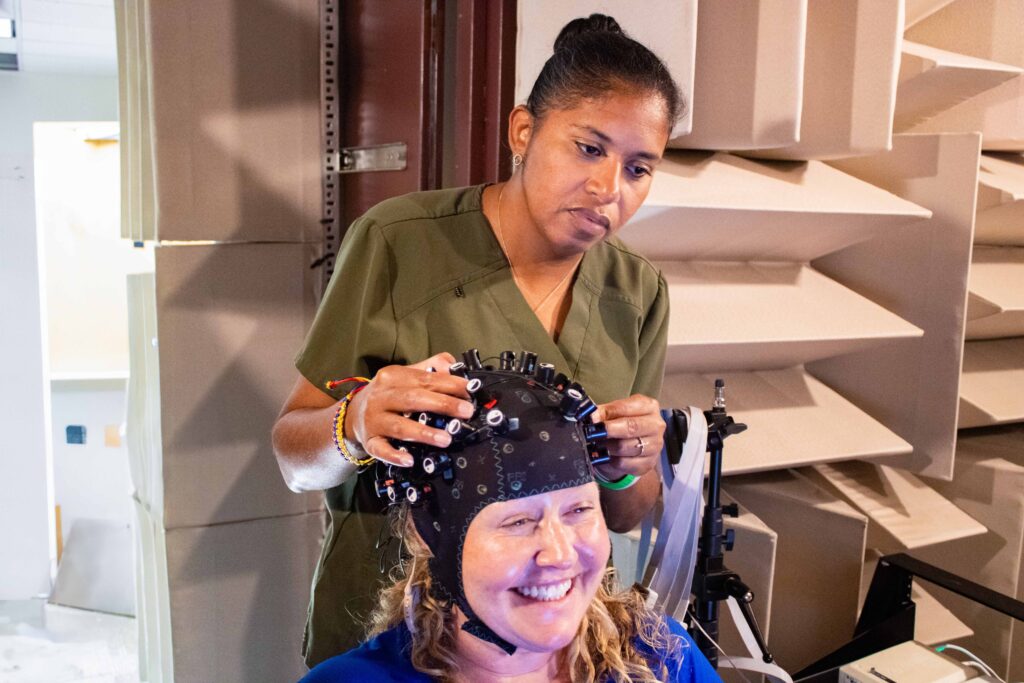If you have single-sided deafness, you may qualify for a study that Dr. Greg Basura, MD, PhD, Director, Global Otolaryngology and Professor in the Department of Otolaryngology-Head & Neck Surgery, is doing.
“We don’t know as a field the optimal time to put a cochlear implant in someone who has permanent single-sided deafness,” Dr. Basura said.
This study will hopefully change that. Dr. Basura is using innovative brain imaging called infrared spectroscopy (pulse oximetry for the brain) to ascertain how the brain is in the absence of hearing changes. Specifically, when the hearing is out in one ear, how does the auditory circuit become influenced by non-auditory parts of the brain?
“For example, visual and vibrotactile parts of the brain move in and take over some of the neurons and parts of the brain that were reserved for hearing,” Dr. Basura explained. “I’m trying to understand when does that happen after single sided deafness that’s permanent that is not recovered by steroids and is not caused by a tumor, and how does that change in the brain impact cochlear implant performance?”
The FDA only approved cochlear implants for single-sided deafness indications in 2019. Many people have had years of hearing loss, so it is unknown whether their brains have changed so much with cross modal plasticity to the effect that a cochlear implant may not help them. By trying to learn more about the timing of cross modal plasticity, durations of deafness, and levels of plasticity, Dr. Basura is hoping this will inform when to optimize the deafened brain to give the best chance of cochlear implant performance.
The study is actively recruiting patients with single-sided deafness who plan to get a cochlear implant. Before surgery, their plasticity will be recorded, and then at several visits out to one year, the changes after will also be recorded. This will be correlated with their speech performance on implant testing.
In addition to having single-sided deafness, prospective study candidates aged 18 and up must have had an audiogram, seen an otologist and an audiologist, and ruled out a tumor. The only hearing ear must have no more than mild hearing loss. Even if the candidate is not going to get a cochlear implant. Dr. Basura is still interested in seeing them.
If interested, contact Dr. Basura’s clinical research coordinator, Leah Taylor, at baslab@pitt.edu or 412-952-7546.
